QuestionHi and thank you for offering your time. We have two gorgeous 3 year old rescue dogs, Rocky and Prince are maltese x poodles and we've had them for about a year now. They are gorgeous boys (desexed) and very much a part of the family. One of the dogs brings us something every time he comes in after being outside, when we return home to them from a trip out etc. It may be a shoe, a sock or anything lying around. It's almost a compulsion. He doesn't always drop it at our feet, he might just bring it and then act in a submissive way while holding it (slinking about, head down, rolling over). Generally he's quite a confident dog and the more dominant of the two. It's not a problem (although many pairs of socks have been mixed up!) but I thought you might have some ideas of why Rocky does this. Is it something from his past maybe?
And one other question, and I certainly don't expect you to give a detailed answer as I know it's complicated. But Rocky is great around other dogs when I'm not around, but if he's on a lead with me and another dog approaches he will bark and lunge at the other dog, it is quite aggressive. If the dog is very large then it's more of a controlled woof lol. How do you tell the difference between fear aggression, protection, dominance? I'd like some ideas of what to look for before contacting an animal behaviour expert. I don't expect you to fix the problem for me, of course.
AnswerIt appears that the dog bearing gifts may be repeating behaviors he demonstrated in another home, but for which he was disciplined or frightened by human reaction. Coveting the possessions of the humans when they are not at home is a dog's way of remaining close to the human and also offering a scent object so the human can find its way back (the dog of course not realizing the complexity of human comings and goings.) This is a common behavior; it's possible this dog was chased around for the object in a former home or disciplined for having it, which would explain his extremely submissive posture. He has connected having an object with discipline and/or fear but he has not connected obtaining the object with the end result. The best response is no response at all; ignore the dog totally UNTIL he DROPS whatever object it is, then call him over and greet him with affection. Wait until he DROPS the object, even if (at first) it takes quite a while. He will eventually learn that he will not be greeted until the object is no longer in his possession and hopefully this will eventually transfer to not obtaining the object (although this will take quite a while.)
It's far easier to solve the on lead aggression. If Rocky is fine with other dogs unless YOU are there, YOU are the problem. Your anxiety or apprehension when he first demonstrated this behavior (for whatever reason) has set him up for anxiety at the other end of the leash; he has most likely learned that when another dog approaches while he is on leash with you, YOU become anxious, ergo: approaching dogs are a potential problem with you around. The first treatment for this is for you to go to the end of a long lead (training lead) the next time he offers this behavior and just STAND there doing nothing. If Rocky persists in his alleged aggression (which is most likely not true aggression or it would be consistently demonstrated), turn your BACK to him (still at the end of the leash). Have someone observe this and see what Rocky does. If he looks AT YOU, there's your cue that you are the root cause; the dog is observing you for the next behavior and has totally disconnected from the source of his pseudo aggression: the other dog. In that case, you need to consistently back away when he demonstrates this behavior, observe him closely, and the MOMENT he shows displacement (looks away from the other dog, even if up at the sky or sniffing the ground) praise lavishly and throw a small treat in your direction (so he has to come back toward you to get it.) After consistently rewarding the dog for displacement, and withdrawing in a calm manner, you should see him change his attitude. Obtaining a certified applied animal behaviorist to address this problem can't hurt at all, but beware of dog trainers who are self certified and don't understand the owner's heavy contribution to on leash aggression problems.

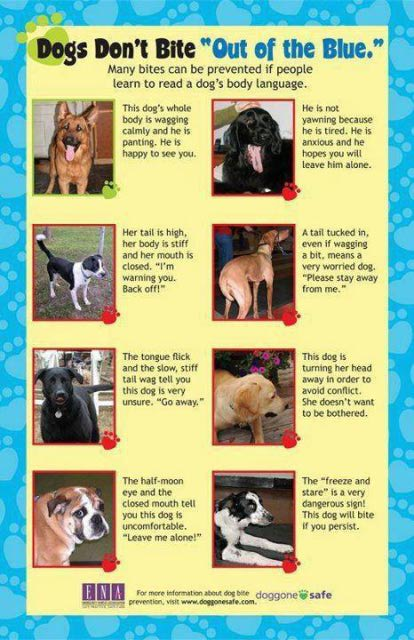 Is this aggression, dominance, or play?
QuestionQUESTION: I have a question regarding doggy beh
Is this aggression, dominance, or play?
QuestionQUESTION: I have a question regarding doggy beh
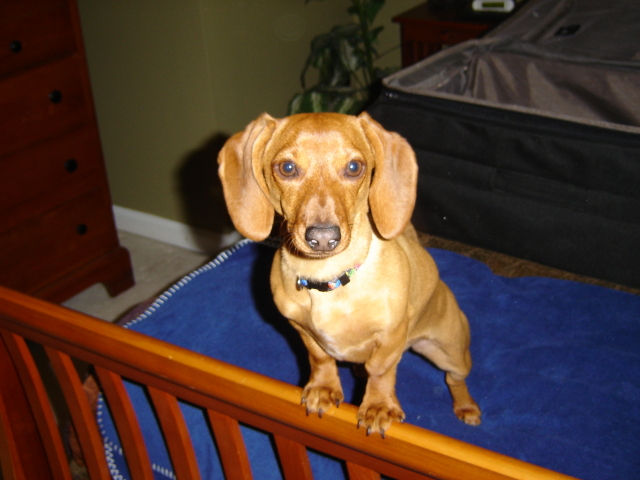 Mini Daschund with anxiety issues
QuestionAbigayle
QUESTION: I have a 3 1/2 yr old
Mini Daschund with anxiety issues
QuestionAbigayle
QUESTION: I have a 3 1/2 yr old
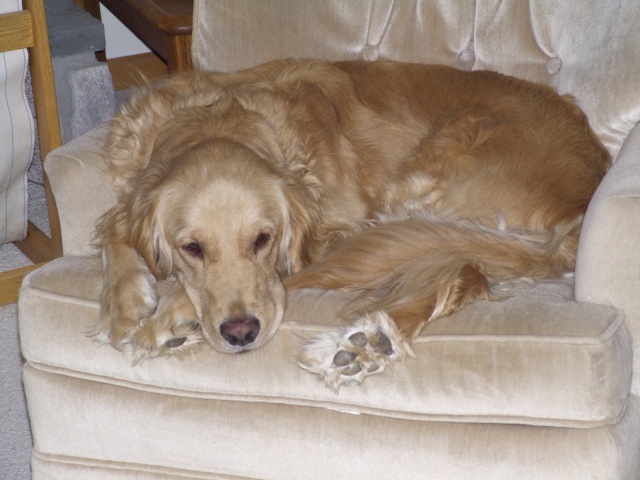 aggression in aging dog
Question
Niko
I have a thirteen year old, female, Samoy
aggression in aging dog
Question
Niko
I have a thirteen year old, female, Samoy
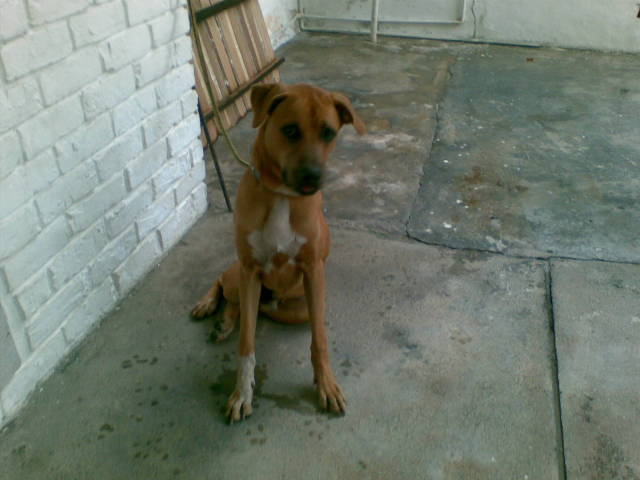 dogs behaviour
QuestionMy 8 months old Dusto
QUESTION: My puppy
dogs behaviour
QuestionMy 8 months old Dusto
QUESTION: My puppy
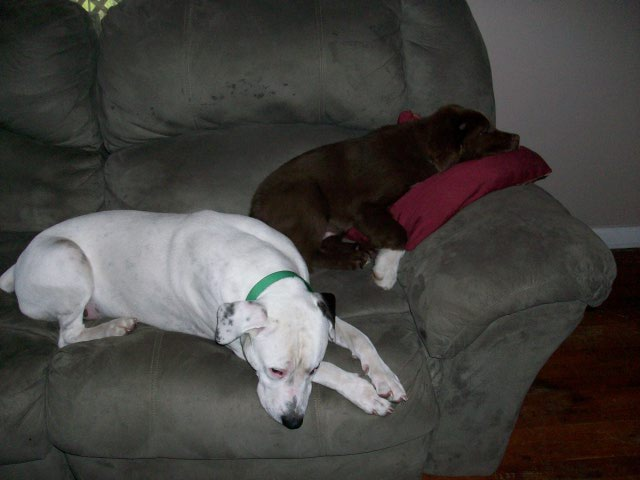 American Bulldog aggression
Question
Buddy and Rez
I have a 2 year old Ameri
American Bulldog aggression
Question
Buddy and Rez
I have a 2 year old Ameri